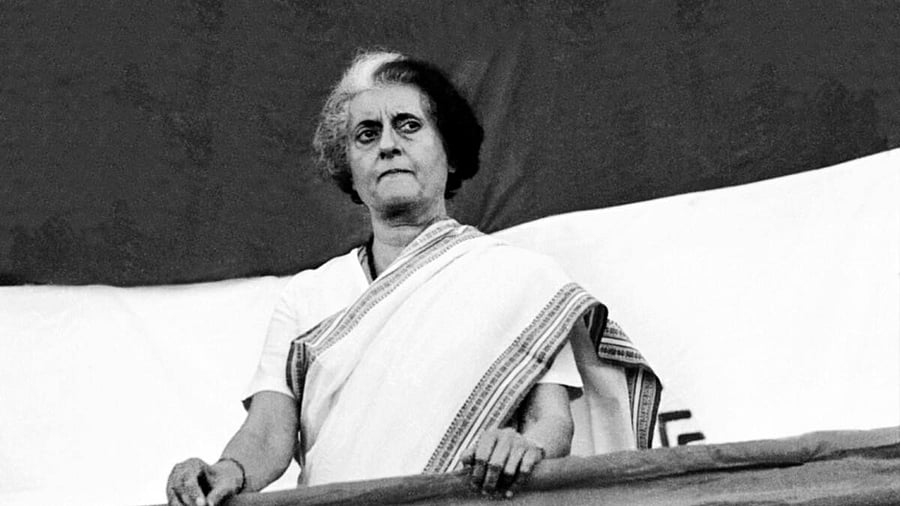
Former Prime Minister Indira Gandhi.
Credit: DH Archive
The darkest chapter in the history of independent India was written on the midnight of June 25, 1975 with the proclamation of Emergency but the foreword was penned when the Allahabad High Court declared then Prime Minister Indira Gandhi's election from Rae Bareli null and void on June 12 that year.
The election petition against Gandhi was filed by Raj Narain, the Socialist Party candidate, who lost the election from Rae Bareli.
Narain had alleged that Gandhi's election agent Yashpal Kapoor was a government servant and that she deployed government officials for her election-related work.
The high court verdict that found Gandhi guilty of electoral malpractice had intensified public unrest against the government due to high inflation, shortage of essential commodities and the stagnant economy, which was reeling under the impact of the war of 1971 against Pakistan that led to the creation of Bangladesh.
Voices of dissent rose from Gujarat in the west, where the Navnirman Andolan against Chief Minister Chimanbhai Patel was gaining momentum and Bihar in the east, where the youth had mobilised under the leadership of Jayprakash Narayan.
Gandhi had appealed against the high court verdict and had received conditional reprieve from the Supreme Court on June 24, 1975 that allowed her to continue as the prime minister, but without voting rights in Parliament.
The next day, June 25, opposition leaders held a massive rally at the Ramlila Maidan in Delhi which ended with a call for a “total revolution” by Jayprakash Narayan, including an appeal to the police and armed forces to disregard orders that their conscience told them were improper.
“If she did not have a dictatorial attitude and did not have a feeling of insecurity, then she would have taken this decision of the court democratically, but she chose another path,” veteran journalist Ram Bahadur Rai said recalling the days of the Emergency.
Rattled by the Supreme Court verdict, Gandhi, after consulting her close aides such as Siddharth Shankar Ray, the then chief minister of West Bengal, recommended to President Fakruddin Ali Ahmed to impose Emergency citing existence of threat to the internal security of the nation.
The declaration suspended the constitutional rights of free speech and assembly, imposed censorship on the press, limited the power of the judiciary to review the actions of the executive and ordered the arrest of opposition leaders.
Among those arrested were Jayprakash Narayan, the Gandhian socialist leader who had given the call for ‘Sampoorna Kranti’ (Total Revolution) and addressed mass rallies in the months preceding the Emergency, L K Advani, Atal Bihari Vajpayee, Madhu Dandavate, Nanaji Deshmukh, Parkash Singh Badal, Prakash Karat, Sitaram Yechury, M Karunanidhi, M K Stalin and scores of political leaders.
With PTI inputs
